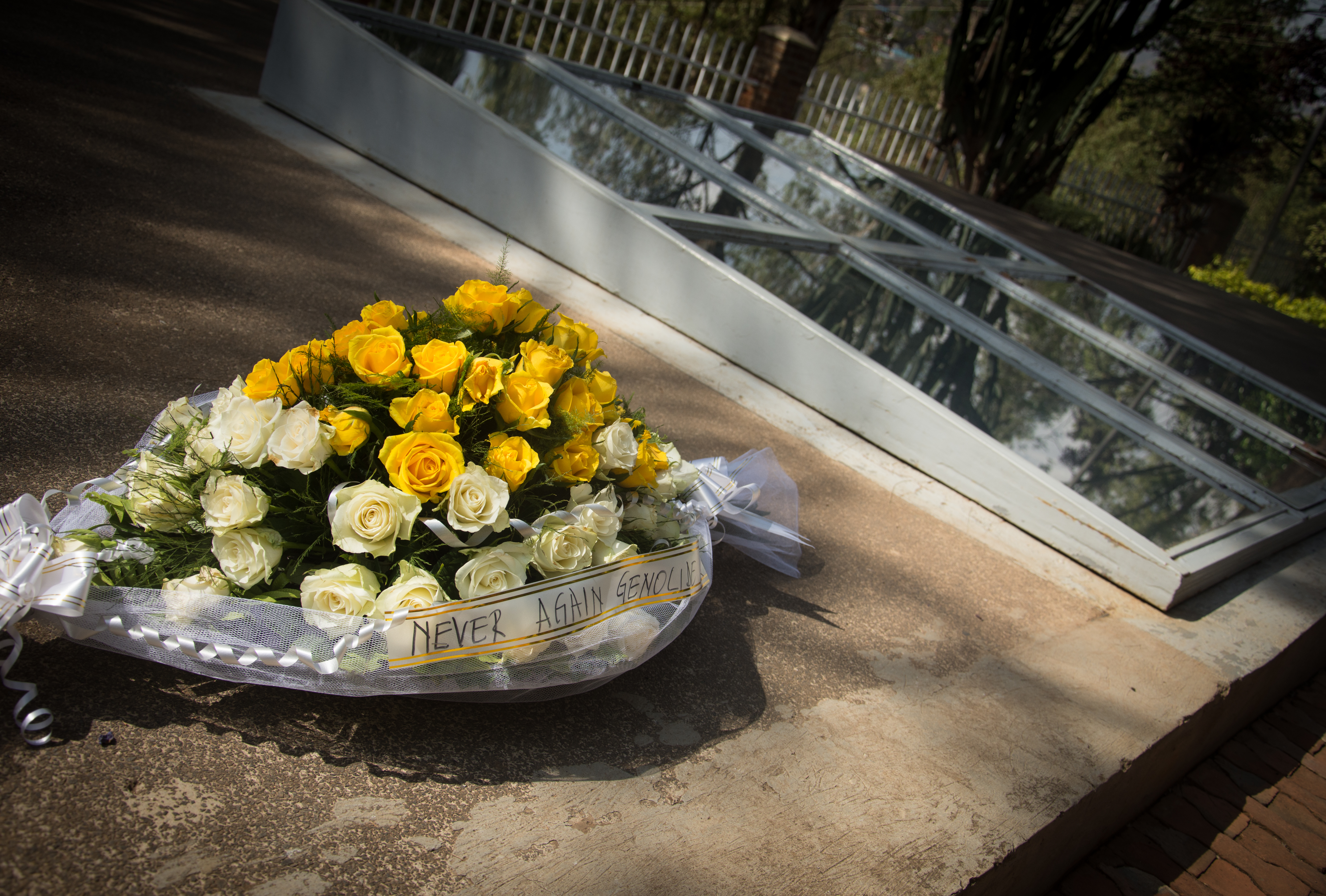#Kwibuka30
Rwandan Genocide Commemoration: What Should We Be Asking?

KIGALI, RWANDA - Flowers at the Kigali Genocide Memorial for the victims of the 1994 genocide in Rwanda. The site serves as final resting place for 250,000 victims.
© ShutterstockFrom “never again” to “where to from here?
Memorialisation of significant historical moments, especially those that shifted perspectives on humanity, will and should find their space in people’s minds throughout time. April 7th marks the start of the Rwandan People’s 100-day period of national mourning to commemorate the atrocity that befell their country and tore at the very social and cultural fabric of their identity. Families were torn apart by the conflict, leaving behind scores of orphaned children. Many of these children found themselves in adoption systems around the world, in border country refugee statuses, or were raised by those who survived within the country.
To a large extent, Rwandan society was bereft of its adult population. Rwanda has been the most closely followed story in Africa in the wake of its reconciliation and peace-building initiatives, coupled with international and continental support to see it through. Throughout its regenerative years, Rwanda has boasted one of the flagship examples of women’s representation in parliament. But what can be said of youth participation? The current literacy rate is said to be at 83.1%. The Rwandan Government’s dedication to access to education is on an upward trajectory, with an envisaged increased literacy rate in 2024 of approximately 84.5%.
However, it should be noted that the pace of transition from French to English as the main medium of instruction in schools has presented an intrinsic challenge to the overall education system. Although thirty years have passed, what can be termed as the new post-genocide generation? Is political participation and engagement something to be avoided for fear of igniting divisions? Does the state of civil society's active advocacy, or lack thereof, impact the nation’s willingness and desire to demand more from their government leadership? What stake could the possible return and voices of the post-generation diaspora have in their country of birth?
In recent days, there has been a notable influx of documentaries following the lives of young people who, at the outbreak of the genocide, were very young or even just born. The state of democracy and respect for international instruments of law, which are supposed to safeguard against renegade behaviour and lawlessness from sovereign states, has been largely challenged and disregarded. The lessons drawn from “to act or not to act” raise serious questions about the power of geopolitics and its adverse effects to this day. This has left the public questioning the merit or weight of some decisions versus others in similar contexts.
Commemoration of the Rwandan Genocide against the Tutsi reminds us of its consequences, but at the same time, highlights the fine line between remaining silent to protect peace and providing avenues to engage responsibly—and actually have the conversations. Looking back and to the present day, Rwanda has shown growth and stability in the nation’s progress. This is not to discount the commitment of the people and their will to see a prosperous and peaceful country.
The ongoing tensions between Rwanda and the Democratic Republic of Congo trigger the already entrenched instability in the eastern region that borders the two countries, reflecting dangerously historical resentments and fears of the past. While the government of Rwanda seemingly quells any form of dissidence within the country and with old enemies flanking their borders, externally they present a different posture. Similarly, in South Africa, as it approaches the 30-year milestone of its democratic dispensation and in the lead-up to the 7th democratic general elections, Rwanda is also in an election year. The example of Senegal’s recent election, demonstrating the power of the ballot and a fully engaged electorate and participatory democratic culture, has revived the sentiment of young leadership representing an equally young continent.
This is especially pertinent with the current and seemingly growing phenomenon of military coups d'état, which have become expressions of regime change. The apex of political power should ideally be measured and be a direct reflection of a free society. The incumbent President, Paul Kagame, has been perceived as the custodian of stability in the country and has largely gone uncontested in the elections. While the framework for ticking the boxes of indicators of decentralised levels of government has been critically debated over the years, if the agency of civil society is not fully realised and rigorous political debate encouraged, it does little to effect actual reforms and alternate views. This is described in a research paper from the London School of Economics.
As the date for the General Elections of Rwanda approaches and we observe this landmark commemoration, let it be an opportunity to revisit the past in a way that allows us to truly and openly map the future of the country, cultivating youth engagement and understanding the potential this can bring to a diversified chapter in the country’s story.
